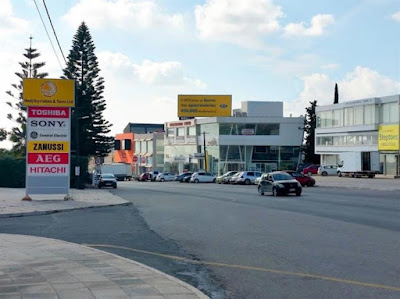Filenews 23 April 2021 - by Dora Christodoulou
Successful was the conclusion of the consultation of the Paphos Offers Council and a bidder for the redevelopment and improvement of Greek Avenue/Mesogi Road. The municipal authority finally accepted the only offer submitted for the large project, after the bidder reduced its requirements by about 270 thousand euros, so that the percentage of the excess of the pre-estimate of the Municipality of Paphos would be reduced from the initial 17% to 13%, so that it falls within the limits of the 15% excess provided for in order to accept an offer.
The agreement on the redevelopment of this main road and commercial axis of Paphos will now cost €8.8 million and has been reached in order not to waste valuable time with the re-announcement of tenders, but also because the unit amounts have now been leaked and therefore the municipal authority considered it certain that the new tenders would move at the same high levels.
The Municipal Councillor of Paphos of EDEK, Panagiotis Vorkas stressed the importance of this development, since as he pointed out the project is expected to contribute substantially to the strengthening of commerciality in the area, as well as to the aesthetic and functional upgrading of the city.
"As part of its execution, more than 250 parking spaces are planned to be created on the highway, the construction of safe pavements, the underground cables of all services, tree planting along the road, the construction of a bike path and more," he said. "Construction work will be carried out throughout the width of The Avenue of Greece and part of Evagora Pallikarides Avenue, while the terms of the Competition included provisions to facilitate traffic during the work. The contractor will also have an obligation to ensure access to residential and business premises."
The project monopolized interest in Paphos for some time due to the intense controversy recorded as to whether it would also provide for the construction of a dividing islet. In this case, traders and residents were opposed from the outset, while both the competent government departments and the Municipality of Paphos favoured its construction. However, the constant mobilizations and representations of the local community eventually prompted scholars to remove the islet from the design.
